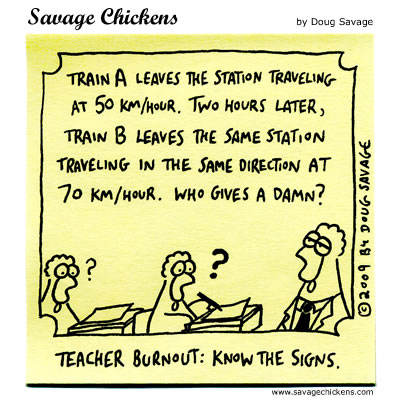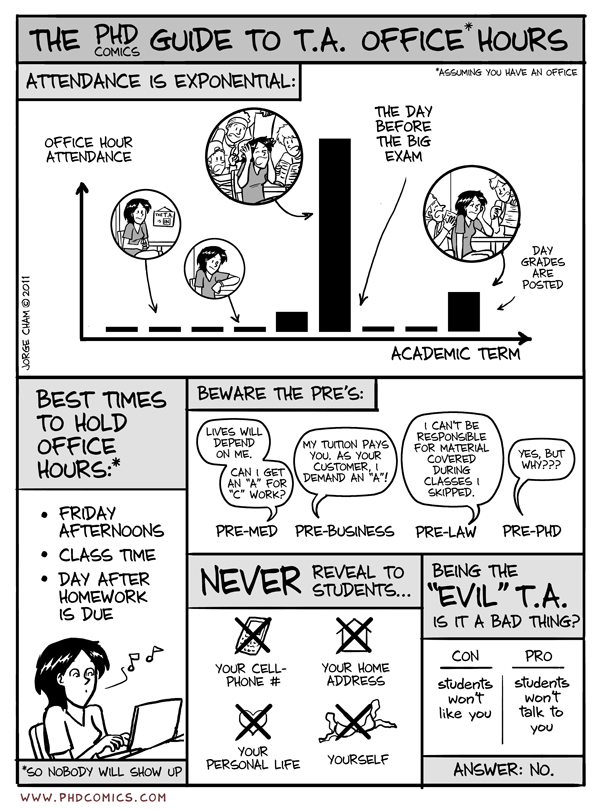Ah excuses, easily the biggest bane of any teacher's existence, ever. And at the college level, we've gone well beyond, "The dog age my homework." The tales you will hear will range from the astonishing, to downright infuriating. Of course they're not all lies, but even the truth tellers tend to go out of their way to make things messy.

Firstly, every year you will always have at least one student e-mail you the DAY a major paper is due or a test will occur. Always. And it's always some variant of "I'm so busy I didn't have time to do it!" Normally my rule is, if you came to me with a legitimate issue BEFORE said date, I will probably roll with it if it doesn't start too many issues. Examples of complete inability of students to follow this philosophy:
- Student A shattered his dominant arm mid week that a paper was due. You don't really need a note for this, they show up with a cast. So I gave him an extension to go down to disabilities resources and get help with writing. Easy! If he had told me the day of or day before though, hell to the no. You shouldn't be writing the paper 2 hours before class anyway and putting if off until then certainly doesn't earn you an extension. Of course, this kid ended up turning it in later than the extension date anyway so he still could have lost points. Round two had no excuse besides, "I forgot!" Regardless the paper was terrible so the score was low enough that not only could I tell he'd written in that Saturday to turn it in in the middle of the night (it was due Friday) but I couldn't even justify taking off an additional 20%.
- Student B sends me an e-mail after hours on a Friday. She states that she is leaving for a conference in an adjoining state with her club and won't be back until late Tuesday, therefore missing the field trip we have on Monday. She says she will go to the Thursday class. So, I have two major issues with this e-mail.
- It's a conference, which means you knew about it more than 12 hours in advance so either you are lazy and didn't bother to use a pre-excuse as an actual pre-excuse or you fibbing. I made her show documentation so it was legit, but seriously, she's known since the first week of school, what?
- I HATE (hate hate hate hate hate) when students skip the request stage and immediately assume they can jump in where ever or just get the notes and that's just fine and dandy. As a student you are SUBORDINATE. You have to ask. And in this case we had full classes so she couldn't just pop on to another day, there wasn't room in the vans.
- The first week of school contained labor day, so Monday labs were missed. However, the instructor decided that all safety training needed to be done that week. Therefore the students needed to hop in to one of the other 3 labs that week or to my extra session on Friday. Student Splinter Group C ignored the requirement and the very important step of TELLING ME.
- Did I mention all I require is communication? You know that first day whether you will have issues or not. It's like the pre-excuse, I just don't care as much when you show me you don't either!!
- Anyway, I digress. Come the following Monday I had 7 students who had not only missed training the last week but ignored even talking to me about it in class. I held them after and asked why they skipped. The average response? "I just got the information from somebody else taking the class."
- So...I was pretty sure I hadn't certified anyone else to do safety training. I told them training is more of a piece of paper and I needed them in the training with a signature of completion if they wanted to stay in class. Furthermore, since they skipped class without discussion they received an unexcused absence.
- I actually had a student tell me she couldn't e-mail me because she didn't have access to the internet. Apparently for 7 days. I asked if she had been on campus at all, since we have free computer access. What I didn't ask was if her legs were broken so she couldn't walk up to the instructor's or my office either, the location of which were given in lecture multiple times. Miraculous healing she must have had.

Next week I'll post some more serious excuse situations. Have some good stories of your own? Let me know!!
"The history of our race, and each individual's experience, are sown thick with evidence that a truth is not hard to kill and that a lie told well is immortal." Mark Twain


